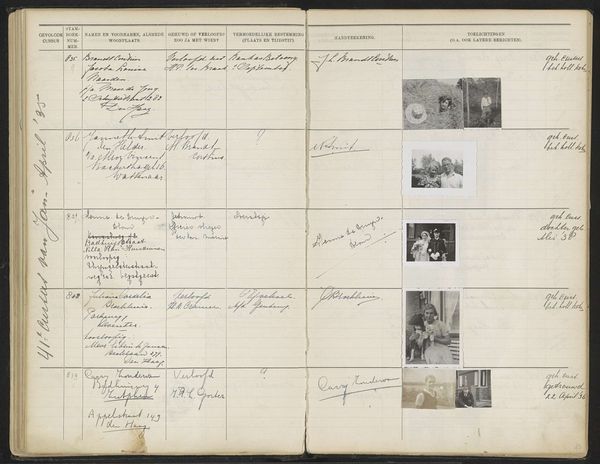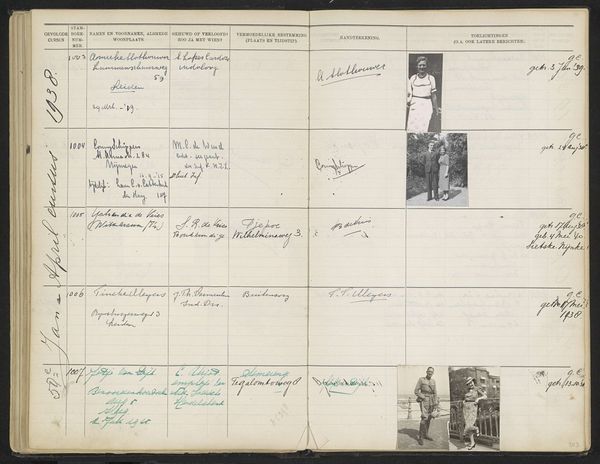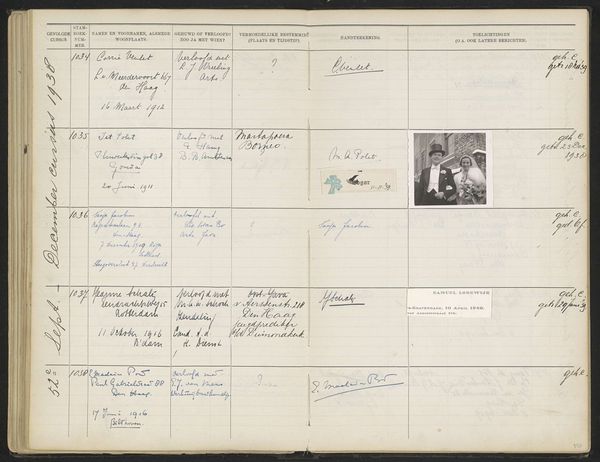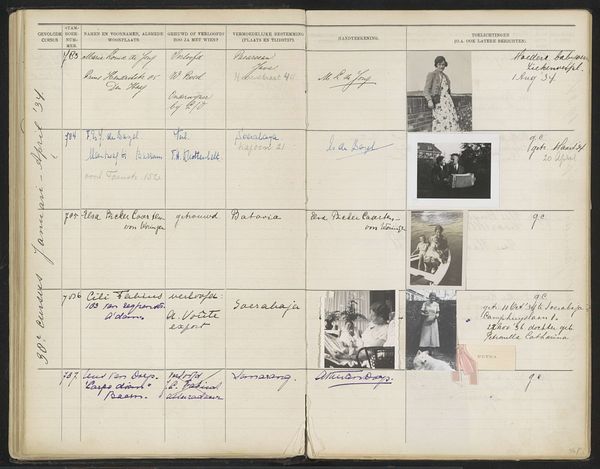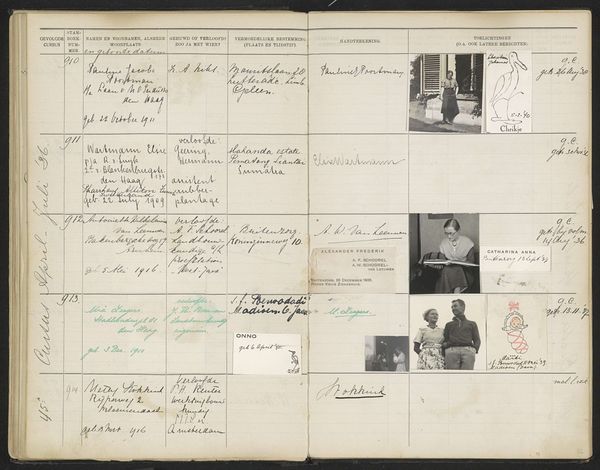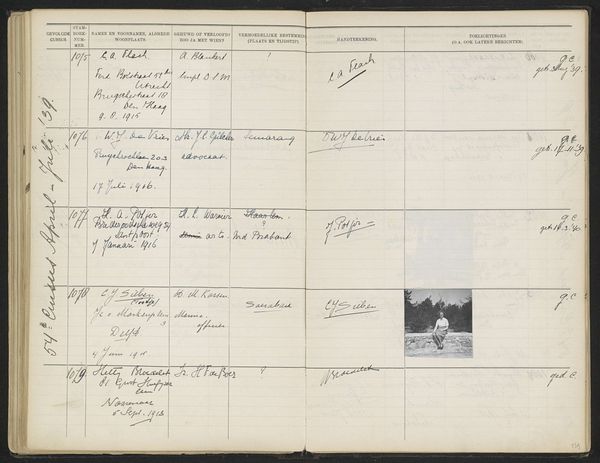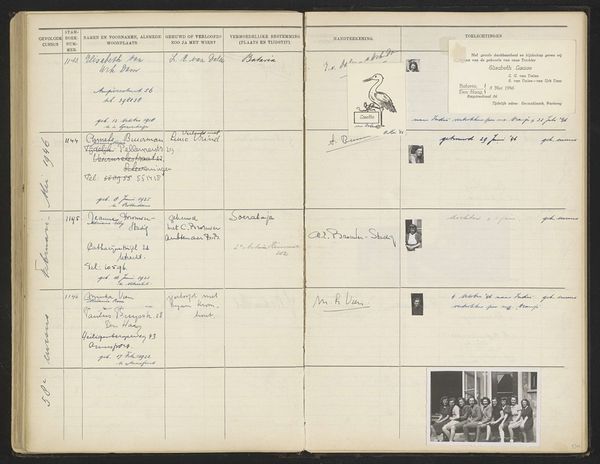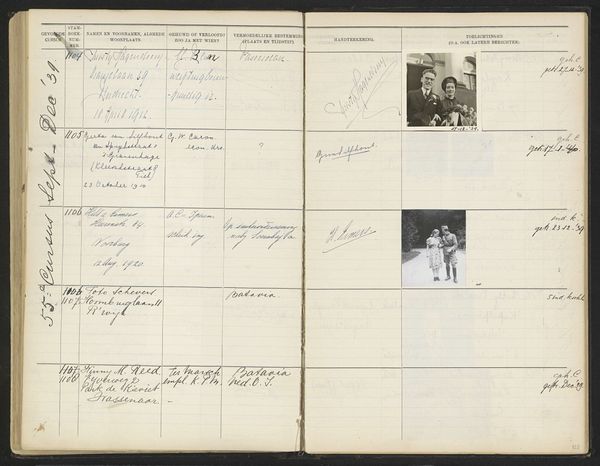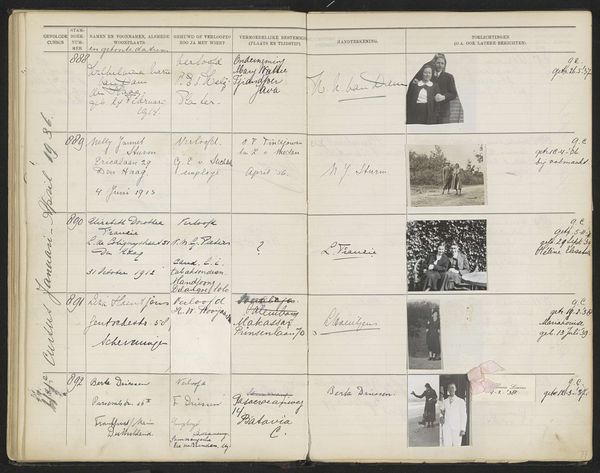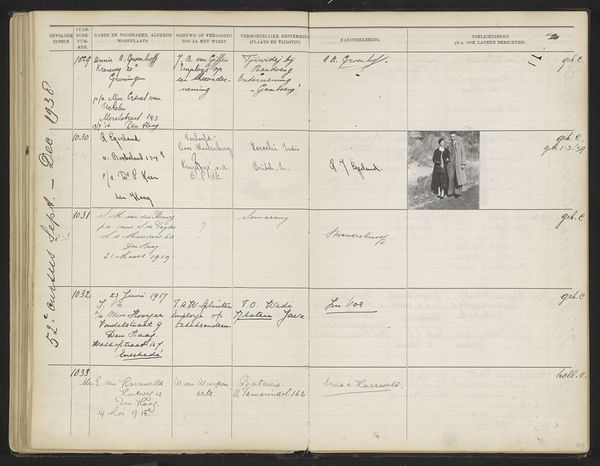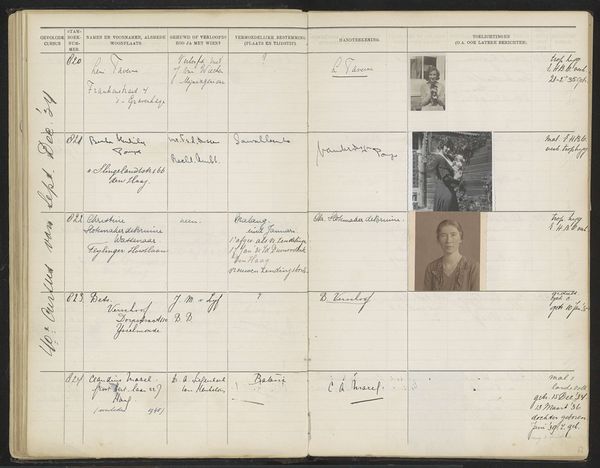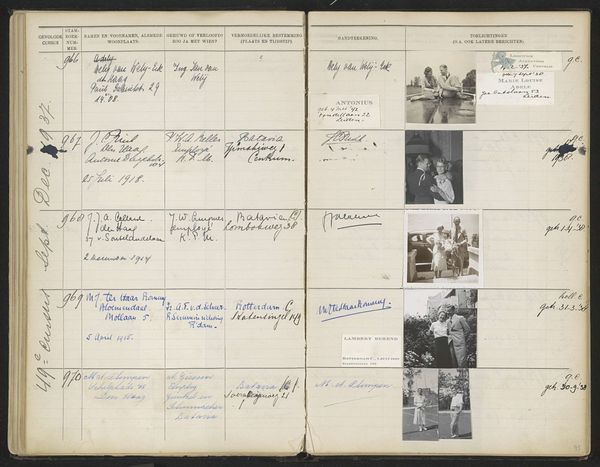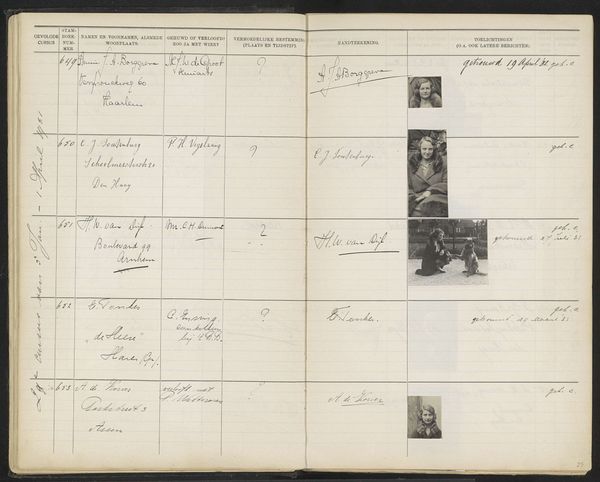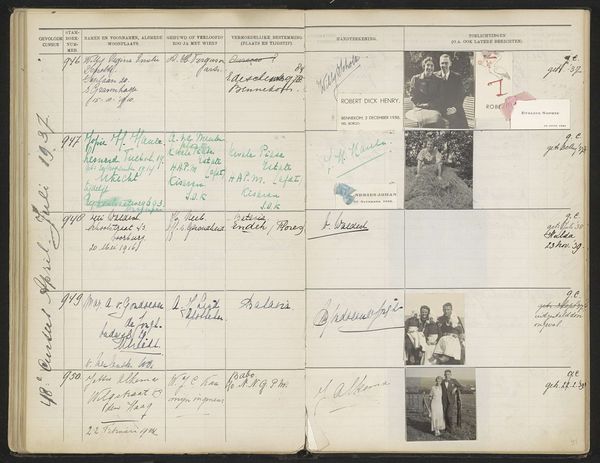
Blad 93 uit Stamboek van de leerlingen der Koloniale School voor Meisjes en Vrouwen te 's-Gravenhage deel II (1930-1949) Possibly 1937
0:00
0:00
collage, print, paper, photography
#
portrait
#
collage
# print
#
paper
#
photography
Dimensions: height 337 mm, width 435 mm
Copyright: Rijks Museum: Open Domain
Editor: This page, "Blad 93," appears to be from a register of students at the Colonial School for Girls and Women in The Hague, likely from 1937. It’s a fascinating collage of handwritten notes, photographs, and even what looks like a fashion illustration pasted onto the page. It’s giving me such a strong sense of another time and place! What stands out to you as you look at this record? Curator: It's a remarkable document, isn't it? To me, this page speaks volumes about the socio-political context of the Dutch colonial era. These were young women being trained for life, most likely as wives or administrators, within the Dutch colonies. Note the careful handwriting, the pasted photographs, all meticulously recorded. These images weren't randomly chosen. Consider the impact the location had, a “Koloniale School”, suggesting they lived a privileged but yet restrictive role within that colonial structure. Editor: That’s so interesting, the idea of the photos and illustrations having specific meanings. The image of the woman with the car suggests a certain status. Curator: Exactly! The photographs offer a curated image of colonial life: travel, leisure. Then, that fashion illustration... what does that palm tree silhouette represent in relation to these women's lives? The ‘exotic’, the ‘tropical’, a place that might at once be promising and dangerous? And all so meticulously categorized within the institutional frame. Who controlled this "Stamboek," this ledger? And for what purpose? Editor: It's unsettling to think about the degree of control and imposed identity contained on a single page. Curator: Precisely. The archive isn't neutral. How might the subjects, the women themselves, have viewed this record of their lives? Did they have agency within this colonial project, or were they merely objects of it? Editor: It makes me want to know more about each of these women and how they navigated this complex world. Thank you; I definitely have a different perspective now. Curator: And I am reminded of how much a seemingly simple ledger sheet can tell us about power, representation, and the legacies of colonialism. A truly fascinating artifact.
Comments
No comments
Be the first to comment and join the conversation on the ultimate creative platform.
